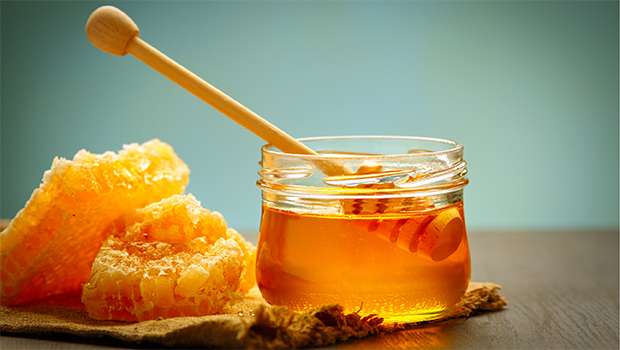Table of Contents
ToggleIntroduction
Mielado, often celebrated as one of nature’s most delightful sweeteners, is a syrup-like substance cherished in various cultures for its flavor, health benefits, and versatility. Though it may resemble honey, mielado has distinct qualities that set it apart. This article delves into everything you need to know about mielado—its origins, production, uses, health benefits, and much more.
What is Mielado?
Mielado is a thick, sweet syrup traditionally made from the nectar of flowers or other plant sources. While it shares similarities with honey, mielado can be either plant-based or produced by bees. In Spanish-speaking regions, the term “mielado” can refer to various types of sweet syrups depending on local traditions.
Origins and Types of Mielado
The word mielado comes from the Spanish word “miel,” meaning honey. However, mielado isn’t always honey—it can also be a syrup made from plant saps like those of sugarcane, carob, or agave. These plant-based versions have been part of traditional diets and remedies in various cultures for centuries.
There are two main types of mielado:
- Plant-Based Mielado: Made by boiling down the sap or nectar from plants, resulting in a thick, flavorful syrup. Each plant source gives mielado a unique taste and color.
- Honey-Based Mielado: Produced by bees collecting nectar and converting it into honey. This type closely resembles traditional honey but may have a slightly different texture or flavor depending on the flowers the bees visit.
The Production Process
The process of making mielado varies depending on its type:
- Plant-Based Mielado: The raw sap or nectar is collected, then boiled down to reduce water content, concentrating the sugars and flavors into a thick syrup. Careful temperature control is crucial to avoid burning and preserve the natural taste.
- Honey-Based Mielado: This involves the natural process where bees collect nectar from flowers, which is then processed and stored in hives. The honey is harvested and may be further refined into mielado depending on regional practices.
Nutritional Profile
Mielado is rich in natural sugars, primarily fructose and glucose, which provide a quick source of energy. It also contains small amounts of vitamins and minerals such as vitamin C, B vitamins, calcium, potassium, and magnesium. These nutrients make mielado a nutritious addition to your diet, especially when consumed in moderation.
Health Benefits of Mielado
Consuming mielado offers several health benefits:
- Energy Boost: Due to its high sugar content, mielado provides a quick and sustained energy boost, making it an ideal snack before exercise or during busy days.
- Antioxidant Properties: Mielado contains antioxidants that help fight free radicals in the body, reducing the risk of chronic diseases like heart disease and cancer.
- Digestive Aid: The natural enzymes in mielado can support digestion and alleviate common issues like bloating and indigestion.
- Skin Health: Applied topically, mielado can moisturize and heal the skin, making it useful for treating wounds, burns, and dry skin.
Culinary Uses of Mielado
Mielado is a versatile ingredient in the kitchen:
- Natural Sweetener: Use mielado as a substitute for sugar in tea, coffee, or smoothies. It adds a unique flavor and natural sweetness to your beverages.
- Baking: Replace sugar with mielado in recipes for cakes, cookies, and bread. It adds moisture and a rich taste to baked goods.
- Marinades and Sauces: Add mielado to marinades for meats and vegetables. Its sweetness helps create a delicious caramelized glaze during cooking.
- Breakfast Toppings: Drizzle mielado over pancakes, waffles, or yogurt for a nutritious start to your day.
- Cheese Pairings: Pair mielado with cheeses like goat cheese or brie for a delightful contrast of flavors.
Cultural Significance
In many cultures, mielado is more than just a sweetener. It is often used in traditional medicine, religious rituals, and festivals. Its use in ceremonies and its symbolic association with sweetness and prosperity make mielado an important cultural artifact.
How to Choose Quality Mielado
When buying mielado, look for the following to ensure you’re getting a high-quality product:
- Natural and Unprocessed: Choose mielado that is raw and unprocessed, retaining all its natural nutrients.
- Locally Sourced: Support local producers and choose mielado from local sources. This not only ensures freshness but also reduces the carbon footprint.
- No Additives: Ensure the product is free from artificial additives or sweeteners. The best mielado is pure and natural.
Storing Mielado
To maintain its quality, mielado should be stored properly:
- Cool and Dark Place: Store mielado in a cool, dark place away from direct sunlight to preserve its flavor and nutritional content.
- Sealed Container: Keep mielado in a tightly sealed container to prevent moisture absorption and contamination.
- Avoid Refrigeration: Refrigerating mielado can cause it to crystallize. If crystallization occurs, gently warm the jar in hot water to return it to liquid form.
Potential Side Effects and Precautions
While mielado is generally safe for most people, it should be consumed in moderation due to its high sugar content. Those with diabetes or other conditions related to sugar intake should be cautious. Additionally, people with allergies to certain plants or pollen should avoid mielado made from those specific sources.
Conclusion
Mielado is a natural treasure with a rich history, diverse culinary uses, and numerous health benefits. Whether you’re looking to add a touch of sweetness to your dishes or seeking a natural remedy for common ailments, mielado is a versatile and valuable ingredient. By understanding its origins, types, and uses, you can fully appreciate the unique qualities that make mielado a cherished addition to many cultures and kitchens worldwide.
Embrace the sweetness of mielado, and discover how this gift from nature can enhance your life, one spoonful at a time.




